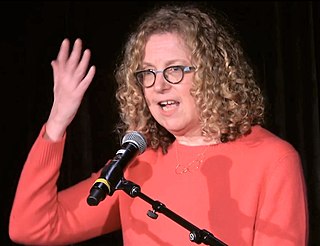Top 40 Quotes & Sayings by Peggy Orenstein
Explore popular quotes and sayings by an American author Peggy Orenstein.
Last updated on April 14, 2025.
Girls are freer to express their femininity and their sexuality and we're not tamping that down or denying it anymore. But it ends up putting them, first of all, in this box. And secondly, premature sexualization of girls actually does the opposite of what people think it might; it actually disconnects them from their sexuality and makes for decreased sexual health as they get older.
Girls would say: "I have a boyfriend for that." So in addition to putting their pleasure literally into someone else's hands - an inept teenage boy - these are the same girls who say they do not climax with a partner. It's the opposite with boys; they say because they can do that themselves, girls should perform oral sex.
My kind of nightmare quote is from Deborah Tolman, who does research on girls and desire and is, I think, brilliant. She told me that by the time girls are teenagers, when she asks them how sexual experience made them feel, they respond by how they think they looked; they think that how they look is how they feel.
One of the challenges is to create an equally positive, satisfying sense of femininity and feminine identity in a different way so that there are things you're saying yes to and satisfying that urge that your daughter has to be assert her girlness. The surface level of the culture, and really several inches into it, makes that very hard to do. I hate to put another thing on parents' plates. But the culture is very intentional in what it's telling your daughter and what it's telling you about the message of femininity. And if you're not intentional and conscious back, you lose.
And isn't that, at it's core, what the princess fantasy is about for all of us? "Princess" is how we tell little girls that they are special, precious. "Princess" is the wish that we could protect them from pain, that they would never know sorrow, that they will live happily ever after ensconces in lace and innocence.
I'll tell you what is insidious about the Disney Princess, besides the fact that if you look into their merchandise, the 26,000 items, you're always finding books that are about "my perfect wedding." It's what it puts girls on the path for. And that it poses as something that protects girls, or staves off premature sexualization, when I think it primes them for it. I don't know where to put that on the continuum exactly. I guess eight?
There is only one princess in the Disney tales, one girl who gets to be exalted. Princesses may confide in a sympathetic mouse or teacup, but they do not have girlfriends. God forbid Snow White should give Sleeping Beauty a little support. Let's review: princesses avoid female bonding. Their goals are to be saved by a prince, get married, and be taken care of the rest of their lives.



















